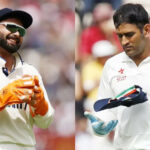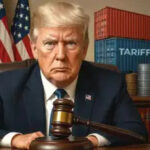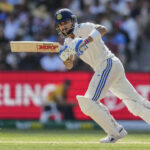Bonjour from Paris where the weather is humid but the sporting action is hot — the host nation has gone Marchand-mad and stadia from Versailles and the Grand Palais to the Stade de France have been filled with fervent French supporters. Even in Lille, a two-hour drive north of the capital where basketball is under way, thousands of fans from across the world showed up in Golden State Warriors jerseys and even a handful of Kentucky and Texas kits to watch Team USA.
After two consecutive Covid-era games in Tokyo and Beijing, the Olympics are the Olympics again, with enthusiastic crowds. Simone Biles, the dynamic American gymnast who has won two golds in Paris in her return to competition following a bout of the “twisties”, told reporters on Thursday that she thought the surge in enthusiasm for the games is in part due to the return of crowds in the stadium. Still, these Olympics are not without their share of controversy — including a developing row over women’s boxing that has drawn pointed remarks from IOC leadership as well as Italian prime minister Giorgia Meloni, and mishaps with staging the triathlon due to the bacteria-clogged Seine river.
Scoreboard, along with our colleagues in the FT Paris bureau, will remain with the action through to the closing ceremony next week. For now, we have some insight into the business behind the games, including some unprecedented product placement and the leverage of social media influencers to spread the Olympics to new audiences. Do read on — Sara Germano, US sports business correspondent
Send us tips and feedback at scoreboard@ft.com. Not already receiving the email newsletter? Sign up here. For everyone else, let’s go.
The product placement Olympics and the future of Games sponsorship

For over a century, the modern Olympic Games have endured as a festival of human ability. Athletes compete in events from archery to swimming, basketball to badminton. And for much of that time, the games have taken place in purist temples to sport, free from signage beyond the Olympic rings and the athletes’ national flags.
That was until the 2024 Paris Olympics, which are emerging as the product placement games.
There is now an official medal podium selfie, presented by Samsung. French luxury group LVMH supplies the medal trays, the medals themselves, the officials’ uniforms whilst enjoying a prominent display of its wares in the opening ceremony. Coca-Cola even got in the act, with keepsake golden water bottles to athletes to wave during the parade of nations.
Each of these placements, in ceremonies previously free from official branding, are indicative of a wider discussion taking place within the Olympic movement. With organisers depending more on sponsors and less on taxpayers to fund the event, the bigger question is, what will those sponsors get in return?
Officials who spoke with Scoreboard offered sharply divided views. Michael Payne, the former marketing director of the International Olympic Committee, said the prime-of-place feature of Louis Vuitton trunks in the opening ceremony will assuredly generate requests from other games sponsors about what, if any, features they can get in future Olympics.
On the other hand, Phil Andrews, chief executive of USA Fencing and a longtime Olympic sports executive, said that the placements are a progressive development that allows the games to become more financially sustainable for hosts.
The biggest question brewing in Paris is what product placements might come next in future games. Samsung, the sponsor of the victory selfie, told Scoreboard that once the 2024 games are concluded they will work with the IOC and hosts of the 2026 Milan-Cortina and 2028 Los Angeles games about other activations. There have already been whispers about potential stadium naming rights for the LA Olympics, people close to the matter said.
However, Payne warned that the privileged position enjoyed by LVMH in Paris may give the IOC a wake-up call to the dangers of putting everything on sale.
The influencer Olympics and the future of broadcast

Influencer marketing was already a big deal in sport. But the scale of what’s happening at Paris 2024 takes it to a whole new level.
These “creators”, as they are now known in the industry, are transforming the way the International Olympic Committee and its broadcast partners market the Games. Dozens have been flown into Paris and given special accreditation to post behind the scenes footage on Instagram, TikTok, YouTube and other social media platforms.
It’s a major shift for the IOC, which is known for a conservative approach to the way it presents and commercialises the Olympics. Rights issues are still a big factor — influencers can’t post live competition footage or interview athletes on camera — so the IOC hasn’t given them free rein.
But the advantages are clear. Influencers can reach millions of eyeballs with a single post, reel or snap. Younger fans connect with their content, which is markedly different from the way traditional broadcasters present the sport. A viral clip can catapult a niche discipline into the mainstream, at least for a moment, which can then serve as one of the highly valuable “on ramps” to get people to tune in to good old fashioned live broadcasts.
Critically, influencers speak directly to viewers who might have no idea what’s going on, say, when two fencers wield their blades at each other. It’s a way of unpacking an Olympic event that many viewers might never have seen before.
Among those in town is Sandra Kwon, a former flight attendant, who has come a long way since her pandemic travel tips launched her “Jeenie Weenie” persona. She now has more than 10 million followers on YouTube. Her first assignment at the games was to decipher fencing from the Grand Palais, one of the most coveted seats in Paris.
“Do you even know the rules to fencing? Because I don’t. Honestly everyone I ask here has no idea what fencing is,” she says to the camera in a short post. “It’s OK, I’m going to show you what fencing is.”
Scott Young, who oversees sports production and content at Warner Bros Discovery in Europe, hopes that bite-sized moments on social can help entice people who have never seen some of the less familiar Olympic events.
“How do I make a competitor in equestrian that I’ve never heard of . . . really interesting in a short amount of time that makes a viewer go, ‘I want to watch that [and] I hope that person succeeds,” he asks. “We can’t do it in isolation,” he added. ‘‘We need partnerships with people who understand how to tell good stories.”
Gary Zenkel, president of NBC Olympics and a veteran of Games broadcasts since Barcelona in 1992, says influencers are an important new avenue for reaching the next generation of sports fans.
“There are certainly audiences, especially among younger generations, who spend more time on short-form content than they do on longer, more traditional programming,” he said. “We will reach them through these platforms.”
The next challenge for broadcasters will be judging success. Zenkel concluded, that it will take some time after the Games have finished to sit down, run through the data, and figure out exactly what worked and what didn’t. In that sense, this is one big experiment.
But you can be sure that — one way or another — influencers will increasingly make their presence felt every time we consume live sport.
Highlights

-
The International Olympic Committee blamed “misleading information” for an escalating row over its decision to allow two boxers to compete in Paris who had previously been disqualified from world championships for failing to meet gender eligibility requirements.
-
Athletics is finally under way at the Olympics. Also in train are several initiatives designed to ensure that the world’s fastest runners are given a platform to shine between Paris 2024 and LA 2028. Our Big Read on the future of track and field is digs into the big issues.
-
For those who fall into the brand of thinking that sport is politics, the FT’s Gideon Rachman asks how long the unifying traits of the Olympics can persist in a politically divided France. He talks to Sylvie Kauffmann, editorial director of Le Monde, here.
-
Real Madrid superstar Kylian Mbappé is the new majority owner of French football club Caen. His business group, Interconnected Ventures, has taken control of the Ligue 2 side through its investment entity Coalition Capital, in a major sign of the French men’s captain’s might off the pitch.
Final Whistle
🗣️ 𝐎𝐍 𝐀 𝐕𝐈𝐁𝐑𝐄́ devant le sacre de @leon_marchand sur le 200m papillon 🦋😍
𝐅𝐄́𝐋𝐈𝐂𝐈𝐓𝐀𝐓𝐈𝐎𝐍𝐒 𝐋𝐄́𝐎𝐍 ! 🥇🇫🇷👏#Paris2024 | #BleuCollectif pic.twitter.com/S4EukHDP39
— Equipe de France ⭐⭐ (@equipedefrance) July 31, 2024
Léon Marchand has been one of the breakout stars of the Paris Games. On Wednesday, he bagged his second and third gold medals in the La Défense Arena, as a nation watched on.
His late surge saw him pip Hungary’s Kristóf Milák — the reigning champion — to first place, prompting jubilation across the country, from inside the fan zone at Club France in Paris to the training camp where the French football team was eating dinner. Allez Léon! 🏊♂️ 🥇 🥇 🥇
Scoreboard is written by Josh Noble, Samuel Agini and Arash Massoudi in London, Sara Germano, James Fontanella-Khan, and Anna Nicolaou in New York, with contributions from the team that produce the Due Diligence newsletter, the FT’s global network of correspondents and data visualisation team
Recommended newsletters for you
The Lex Newsletter — Lex is the FT’s incisive daily column on investment. Local and global trends from expert writers in four great financial centres. Sign up here
Unhedged — Robert Armstrong dissects the most important market trends and discusses how Wall Street’s best minds respond to them. Sign up here





